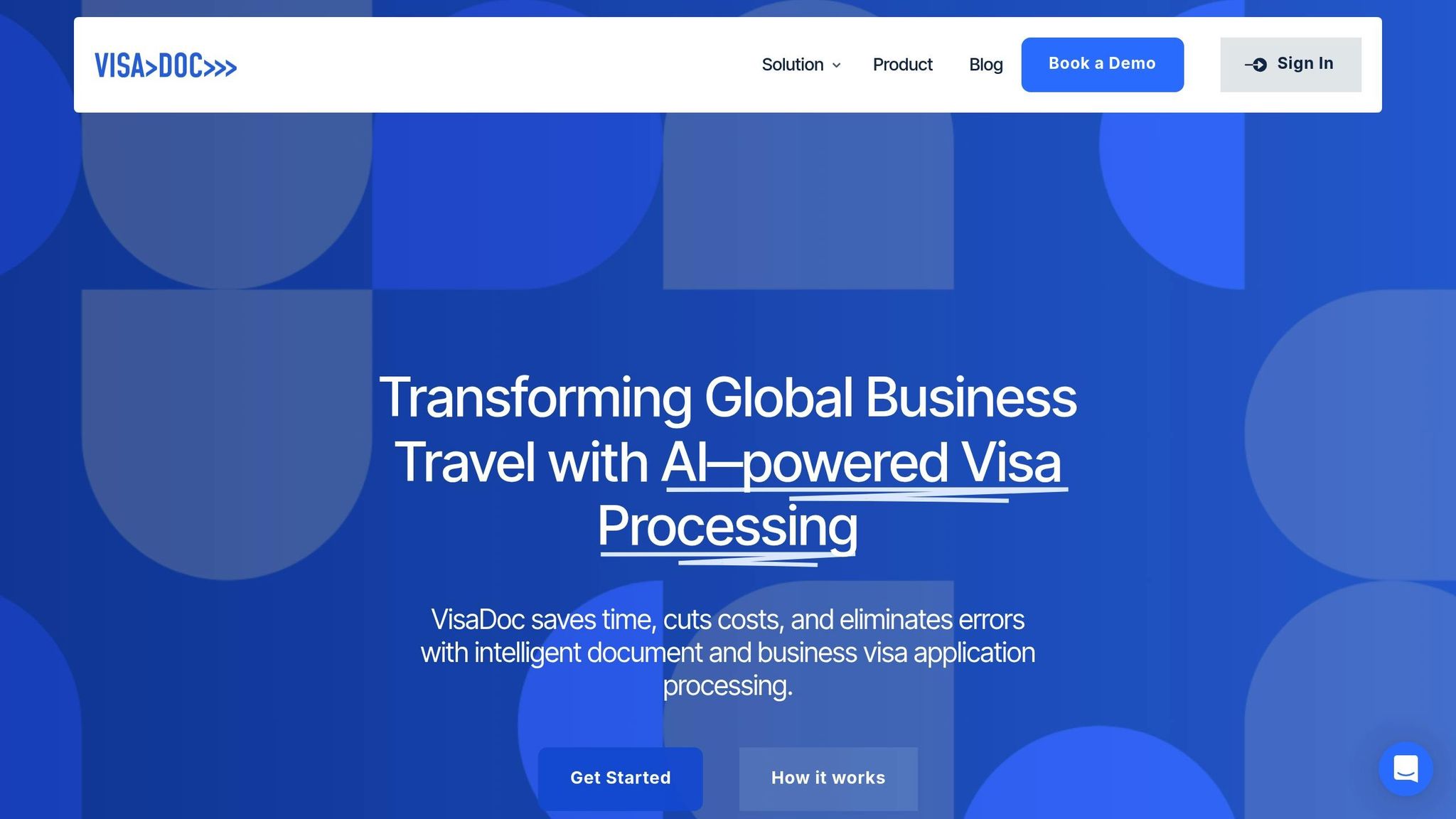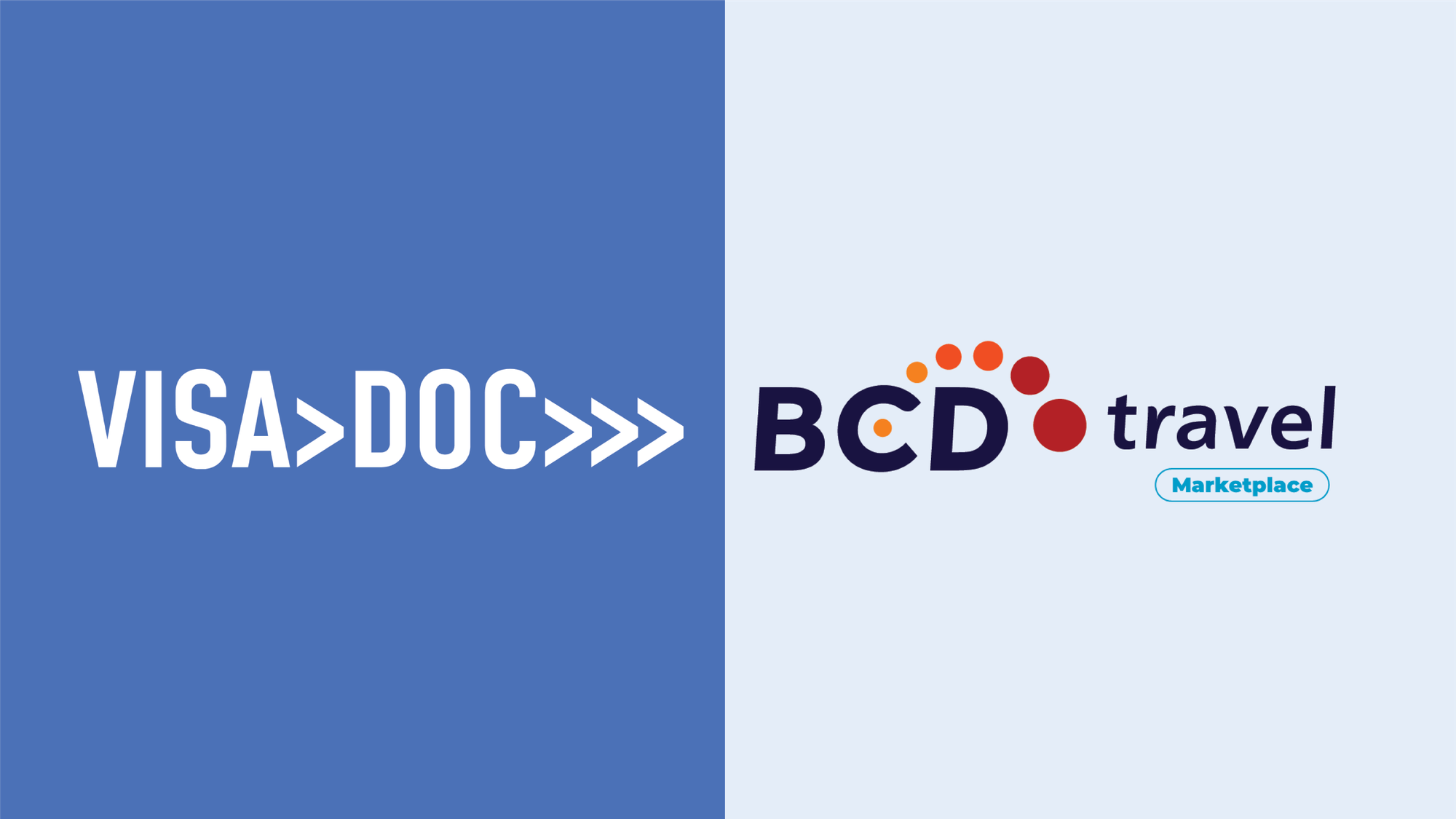Ignoring visa expiry dates can cost your business dearly. Here's why tracking them is essential:
- Legal Compliance: Missing visa deadlines risks hefty fines and loss of your sponsor licence, halting your ability to hire international employees.
- Business Continuity: Expired visas disrupt projects, delay deadlines, and strain team morale, especially in roles requiring specialised skills.
- Avoiding Costs: Last-minute renewals mean paying higher fees, emergency legal support, and temporary staffing costs.
How to stay ahead:
- Use automated alerts to get reminders well before visa expiry.
- Maintain a centralised document system for easy access and updates.
- Conduct regular compliance checks to catch issues early.
Tools like VisaDoc simplify visa tracking with built-in alerts, secure document storage, and risk monitoring. Staying proactive ensures compliance, saves money, and keeps your business running smoothly.
Common Risks of Poor Visa Tracking
Failing to maintain proper visa tracking can lead to some serious headaches for UK organisations. From legal troubles to operational chaos, the consequences of inadequate tracking can be far-reaching. Let's break it down.
Fines and Financial Penalties
One of the most immediate risks of poor visa tracking is the financial hit. Organisations that fail to comply with visa regulations can face hefty fines, which can quickly add up. This makes having a reliable tracking system not just a good idea but an absolute necessity.
But it’s not just about the money. Non-compliance can also put your sponsor status at risk, which is crucial for hiring international talent.
Sponsor Licence Revocation
Repeated non-compliance can lead to something even worse - losing your sponsor licence. Without this, your ability to recruit internationally grinds to a halt. This doesn’t just disrupt ongoing projects; it can also tarnish your organisation’s reputation, making it harder to attract top talent in the future.
Business Impact of Expired Visas
When visas expire unexpectedly, the ripple effects can be felt across an organisation, disrupting operations and straining budgets. These challenges highlight the importance of staying ahead with visa monitoring.
Team Disruption Effects
An expired visa doesn't just affect the individual - it can throw entire projects off course. Here's how:
- Knowledge Transfer Gaps: When key employees are suddenly unavailable, critical project knowledge can be lost or inaccessible.
- Deadline Delays: Projects that require specialised skills may face significant setbacks until the visa issue is resolved.
- Team Morale Impact: Colleagues left behind often shoulder additional responsibilities, leading to stress and potential burnout.
These disruptions are especially tough in roles requiring niche expertise, where finding temporary replacements is no easy task. In worst-case scenarios, technical projects may grind to a halt.
And it’s not just about operations - financial pressures pile up as well.
Rush Renewal Expenses
Discovering a visa has expired - or is about to - often forces organisations into costly last-minute fixes. These include:
- Higher fees for expedited processing and legal assistance
- Emergency immigration support services
- Expenses for hiring temporary staff and penalties from delayed projects
Such rushed renewals not only drain budgets but also increase the likelihood of errors, which can lead to further delays. Implementing a reliable visa tracking system is crucial to avoid these financial and operational headaches, ensuring business continuity.
Key Methods for Visa Tracking
Effective visa tracking methods, like automated alerts, centralised data, and regular audits, play a crucial role in reducing the risks of fines, licence revocations, and operational disruptions. These approaches build on earlier strategies to strengthen compliance efforts.
Automatic Deadline Alerts
Automated systems are designed to notify stakeholders well in advance of visa expiry dates. Here's how they work effectively:
- They use multi-level notifications, starting early and escalating to management if no action is taken.
- Integration with HR systems ensures employee records are updated seamlessly.
This proactive approach ensures nothing slips through the cracks, keeping the process smooth and efficient.
Single Data Repository
Centralising all visa-related data in one secure location minimises errors and ensures everyone involved has access to the most current information. A robust repository should include:
- Secure digital storage to protect sensitive information.
- Version control to track changes.
- Role-based access to limit data visibility based on user permissions.
- Detailed audit trails to monitor all updates and actions.
By consolidating data, businesses can maintain consistency and reduce the risk of miscommunication.
Scheduled Compliance Checks
Regular audits are essential for identifying and addressing potential risks early. Here's a breakdown of how scheduled checks can help:
| Frequency | Focus Areas | Key Actions |
|---|---|---|
| Monthly | Active visas | Verify expiry dates and validate documentation. |
| Quarterly | Sponsor duties | Review right-to-work checks and update employee records. |
| Annually | Full audit | Conduct a thorough review of all visa documents. |
These routine checks ensure that compliance remains a continuous priority, helping to avoid surprises and maintain operational integrity.
How VisaDoc Manages Visa Compliance

VisaDoc tackles the challenges of visa compliance with a streamlined, all-in-one solution. By addressing legal and operational hurdles, the platform lightens administrative workloads and ensures smoother compliance management.
Built-in Expiry Alerts
One standout feature is VisaDoc's built-in expiry alerts. These personalised notifications keep teams informed well before visa deadlines approach. This proactive system minimises the risk of missed deadlines, helping organisations steer clear of compliance breaches or penalties. It also supports better oversight by centralising document tracking.
Centralised Document Management
VisaDoc includes a centralised document management system, offering secure digital storage with version control and detailed audit trails. This feature simplifies access to critical documents, making compliance tracking more organised and reliable.
Tools to Mitigate Risks
To further strengthen compliance efforts, VisaDoc provides tools that monitor visa statuses and flag potential risks. These features allow businesses to take timely action, reducing the likelihood of fines or legal issues.
Conclusion
Keeping track of visa expirations is a critical part of immigration compliance for businesses in the UK. Mismanaging this process can lead to hefty fines and even the loss of a sponsor licence, which could severely impact operations.
Using centralised systems for document management alongside automated alert tools can significantly reduce these risks. By simplifying what is often a time-consuming and error-prone task, these solutions help businesses stay compliant without unnecessary stress or disruptions.
Platforms like VisaDoc show how technology can make compliance easier. With features like automated reminders and secure document storage, these tools shift compliance management from being a reactive task to a proactive and efficient process.
FAQs
What legal risks could a business face for not monitoring visa expirations properly?
Failing to keep track of visa expiration dates can cause businesses major headaches, both legally and financially. Companies risk facing large fines, restrictions on hiring foreign talent, and even damage to their reputation.
On top of that, not adhering to visa rules can trigger legal proceedings or audits, which could interrupt daily operations and pile extra pressure on HR and legal teams. Staying on top of visa management is essential to sidestep these issues and stay in line with UK immigration laws.
How does a centralised system help businesses stay compliant with visa regulations?
A centralised system takes the headache out of visa compliance by automating essential tasks, reducing mistakes, and ensuring applications align with the latest legal standards. Tools like VisaDoc handle document checks efficiently and adjust to the specific visa rules of various countries, making it easier for businesses to stay on top of compliance without hassle.
These systems can also integrate smoothly with existing platforms, such as HR databases and travel booking tools. This integration creates a streamlined workflow, cutting down on time spent and lowering the chances of fines or legal troubles. The result? Businesses can concentrate on their core activities, confident that their visa compliance is fully taken care of.
What key features should businesses prioritise in a visa tracking tool to ensure compliance?
To keep up with regulations, a visa tracking tool needs to offer real-time updates on visa statuses and any changes in rules. This helps businesses stay prepared for shifting requirements. Automation plays a key role here - it should handle tasks like tracking expiry dates, alerting users to upcoming deadlines, and cross-checking applications with the most current regulations.
On top of that, features such as automated error detection can catch mistakes during submissions, minimising the chances of delays or fines. A simple, user-friendly design paired with centralised access to all visa-related information means HR and legal teams can manage processes smoothly and ensure compliance without hassle.













